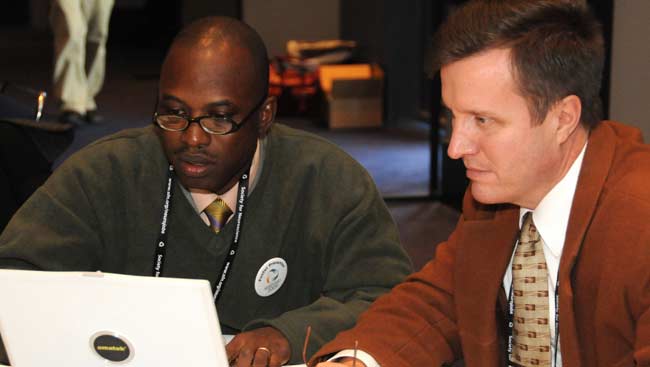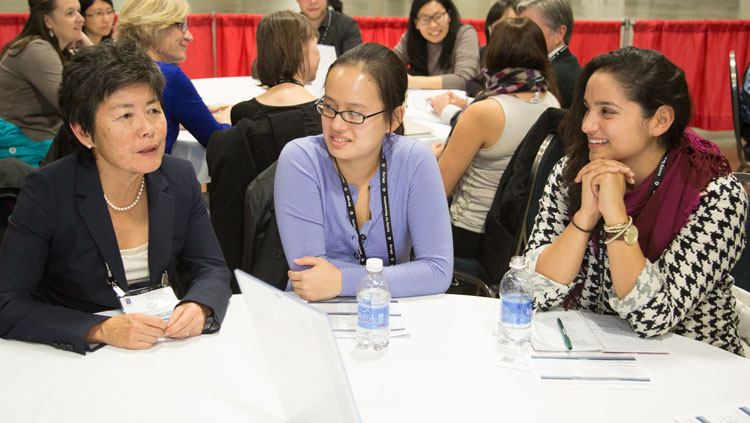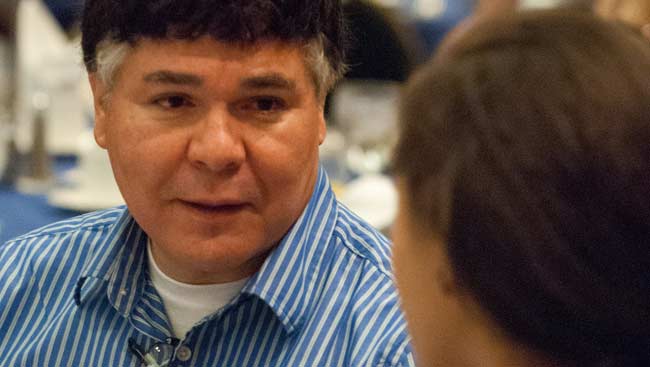Graduate Students: Are You Taking These Steps With Mentors to Advance Your Career?
- Source: University of Michigan Rackham Graduate School
- Featured in:
- Best Practices for Mentoring Relationships

After you have established a mentoring team, it is important to maintain your mentoring relationships in a professional manner. Through your attitude and actions, you can show that you are responsible, and through your work as a graduate student, you can develop and demonstrate your abilities as an independent scholar and researcher.
Remember, the mentors on your team will have different perspectives and interests. For example, some mentors may feel that their role is to assist with revising articles for publication and to prepare you for conferences, but not to sympathize with your personal crises. Other mentors may be available to listen to your private concerns but not to spend hours on data analysis. Be realistic about what each mentor can do for you and be sensitive to each person’s view of your mentoring relationship.
Mentors are more likely to respond to requests for specific types of assistance that they know they can provide. Analyze what you need and explicitly ask for assistance that will help you address that need. If you ask for an excessive amount of help, you run the risk of having mentors feel they are doing your work for you. What is “excessive” will vary by mentor and discipline, so discuss this with your mentor if you have any concerns.
Keep in mind the following general guidelines for professional behavior as a graduate student:
Work Plan
- Develop a work plan that includes both short- and long-term objectives as well as a series of deadlines for completing each step.
- When modifications seem necessary, discuss them with your mentor and agree upon a new work plan.
- Contact your mentor at regular intervals to discuss your progress.
- Pursue additional training and experiences you need in order to achieve your professional goals.
Meetings
- Show up for scheduled meetings on time.
- Meetings will be most productive when you accept responsibility for leading the meeting. Your role is to raise the issues and questions, while your mentor’s role is to respond.
- Prepare an agenda with a list of topics and prioritize them so that you are asking your most important questions first.
- At the conclusion of the meeting or through email, restate what you will be doing and what the mentor committed to do to assist you. Ask the mentor to respond if he or she disagrees with anything you have stated. Follow up on what you agree to do.
- If your mentor is facing a work emergency at the time of your meeting, offer to reschedule the meeting, shorten it, or handle the matter over email. Be flexible, but remain committed to getting what you need in a timely manner.
- If you need to cancel a meeting, make sure that your message is left in a manner that reaches your mentor. Do not rely solely on one form of message.
Critique and Editing
- Clarify how often your mentor will provide feedback about your work and progress.
- Read books or articles your mentors suggest and let them know what you thought.
- Ask when you can expect them to return papers.
- Find out if they tend to provide many or few comments so that you won’t be taken aback.
- Do not submit a draft to a mentor in its roughest form (unless otherwise instructed). Seek your mentor’s input once you are confident you have a presentable draft. Proofread the document carefully. If you have doubts about the quality of your work, ask a more advanced student to read your paper first. Ideally, this person should be familiar with your mentor and the topic so they can make remarks about the content and style.
- Do not ask your mentor to reread an entire paper if only certain sections have been revised. Instead, mark the new or edited sections by underlining them, putting them in boldface, or by using a different font.
- If you disagree with a particular criticism, demonstrate that you are willing to consider that point. If, after thinking about it for some time, you still disagree, demonstrate your ability to defend your ideas in a professional and well-thought-out manner.
Professional Development
- Join professional associations and societies.
- Attend departmental lectures and other activities such as job talks.
- Attend conferences and network with others.
- Seek out opportunities to present your work in your department or through outside conferences, publications, and events.
- Attend teaching workshops and discipline-specific pedagogy classes.
- Take advantage of formal and informal opportunities to improve your understanding of research responsibility and professional ethics.
Portfolio and References
- Maintain an electronic and paper-based professional portfolio to document your accomplishments. This can be used for different purposes and should be focused and concise.
- When requesting a reference, provide updated copies of your CV and portfolio.
- Leave clear, written instructions as to when the letters are due and to whom to send them. Attach a stamped and addressed envelope for each letter. If you have several letters, create a calendar for your mentor that lists application deadlines.
- Provide a short description about the fellowship, grant, or program for which you are applying.
- Provide details about how you are structuring your application and what points you would like your mentor to emphasize.
- Submit these materials with enough advance time for your mentor to write a letter.
- In case you mentor misplaces the application materials, keep extra copies of all forms.
- Ask how your mentor prefers to be reminded of deadlines, if needed.
Clearly establish with your mentor a set of expectations and essential commitments. Complications in mentoring relationships often occur because of misunderstandings and a lack of explicit communication. Some people find it helpful to specify a mutual agreement about their respective roles and responsibilities. One method of doing this is creating a written compact or set of core expectations. The mentor and student can use the written agreement as the basis of a discussion to acknowledge they have established a mentoring relationship and to review the responsibilities of each person.
Adapted from University of Michigan’s Rackham Graduate School. Original source: How to Get the Mentoring You Want: a Guide for Graduate Students.





.png?h=1763&w=3125&la=en&hash=B2439C2768576BED6405672E5CD5CF8CB1AA375F)




